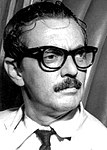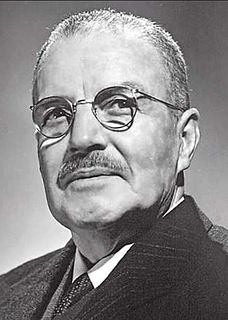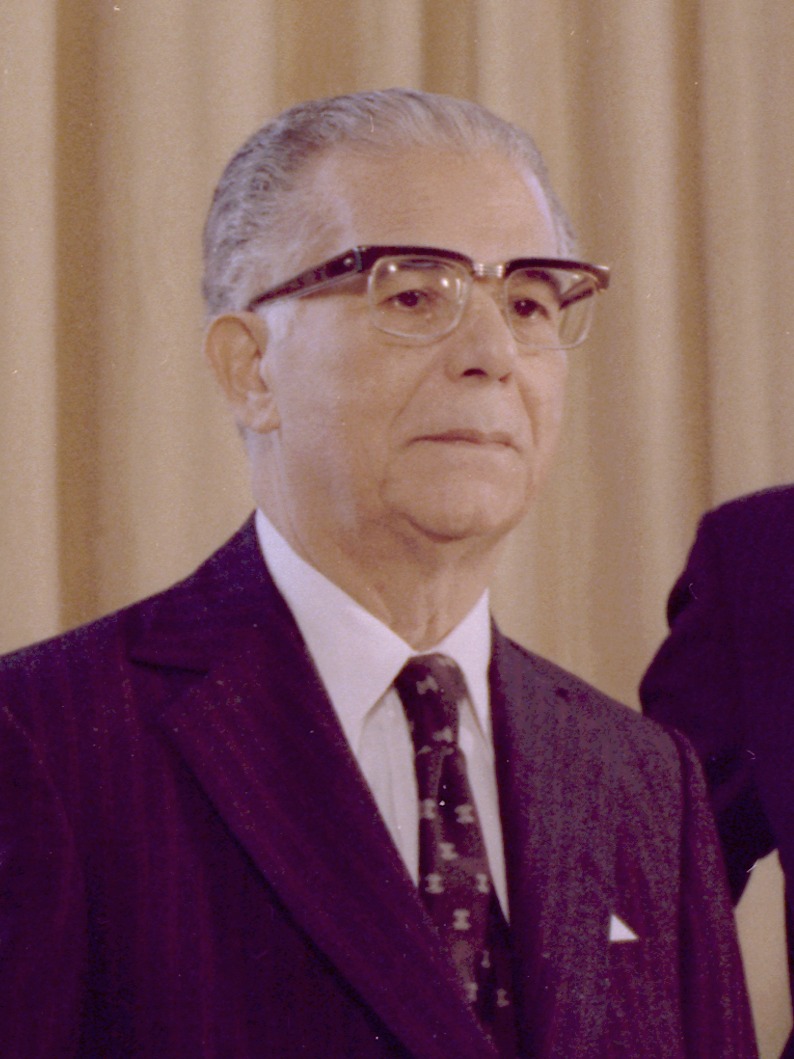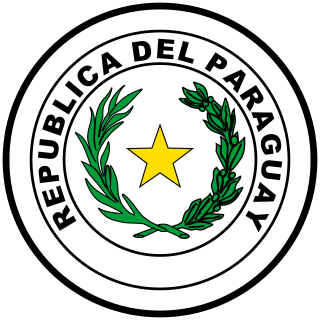| |||||||||||||||||
| |||||||||||||||||
| |||||||||||||||||
 |
|---|
| This article is part of a series on the politics and government of Brazil |
| Foreign relations |
Presidential elections were held in Brazil on 3 October 1960. [1] Jânio Quadros of the National Labor Party, helming a coalition of the PTN, the National Democratic Union and the Christian Democratic Party, won a sweeping victory, taking 48.3% of the vote. Voter turnout was 81.0%. [2]

Brazil, officially the Federative Republic of Brazil, is the largest country in both South America and Latin America. At 8.5 million square kilometers and with over 208 million people, Brazil is the world's fifth-largest country by area and the fifth most populous. Its capital is Brasília, and its most populated city is São Paulo. The federation is composed of the union of the 26 states, the Federal District, and the 5,570 municipalities. It is the largest country to have Portuguese as an official language and the only one in the Americas; it is also one of the most multicultural and ethnically diverse nations, due to over a century of mass immigration from around the world.

Jânio da Silva Quadros was a Brazilian lawyer and politician who served as 22nd President of Brazil from 31 January to 25 August 1961, when he resigned from office. He also served as the 24th and 36th mayor of São Paulo, and the 18th governor of the state of São Paulo. Quadros was known for his populist style of government, honesty, and his eccentric behavior. As president, he focused on economic reform and attempted to root out corruption. He also pursued an independent foreign policy, trying to balance relations between the United States and the Eastern Bloc. Although he was elected by a huge margin, his term was marked by uncertainty and political instability culminating in his resignation. This unexpected move caused national chaos, with the presidency being assumed by João Goulart.

Podemos, previously known as the National Labour Party is a Brazilian political party which supports direct democracy.
Contents
Quadros' victory was the largest in Brazilian history at the time; the 15.6 percent margin of victory would remain a record until Fernando Henrique Cardoso won by 27 points in 1994. His victory marked the first time in 31 years that the presidency had not been won by an heir to the legacy of Getúlio Vargas.

Fernando Henrique Cardoso, also known by his initials FHC, is a Brazilian sociologist, professor and politician who served as the 34th President of Brazil from January 1, 1995 to December 31, 2002. He was the first Brazilian president to be reelected for a subsequent term. An accomplished scholar noted for research on slavery and political theory, Cardoso has earned many honors including the Prince of Asturias Award for International Cooperation (2000) and the Kluge Prize from the US Library of Congress (2012).

Getúlio Dornelles Vargas was a Brazilian lawyer and politician, who served as President during two periods: the first was from 1930–1945, when he served as interim president from 1930–1934, constitutional president from 1934–1937, and dictator from 1937–1945. After being overthrown in a 1945 coup, Vargas returned to power as the democratically elected president in 1951, serving until his suicide in 1954. Vargas led Brazil for 18 years, the longest of any President, and second in Brazilian history only to Emperor Pedro II among heads of state. He favored nationalism, industrialization, centralization, social welfare and populism – for the latter, Vargas won the nickname "The Father of the Poor". Vargas is one of a number of populists who arose during the 1930s in Latin America, including Lazaro Cardenas and Juan Perón, who promoted nationalism and pursued social reform. He was a proponent of workers' rights as well as a staunch anti-communist.
This would be the last free presidential election held in Brazil until 1985.















